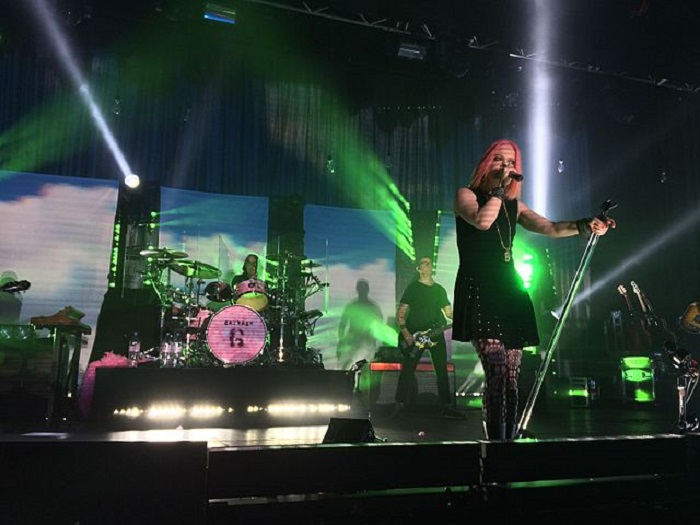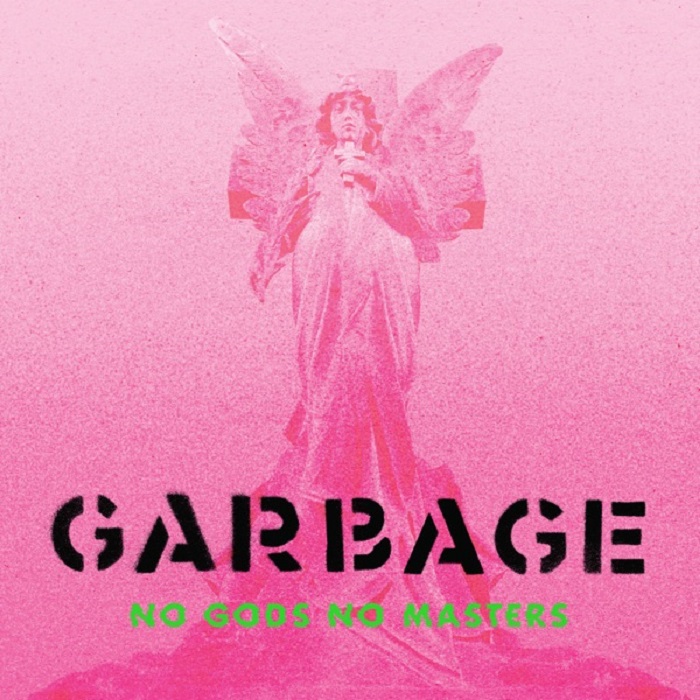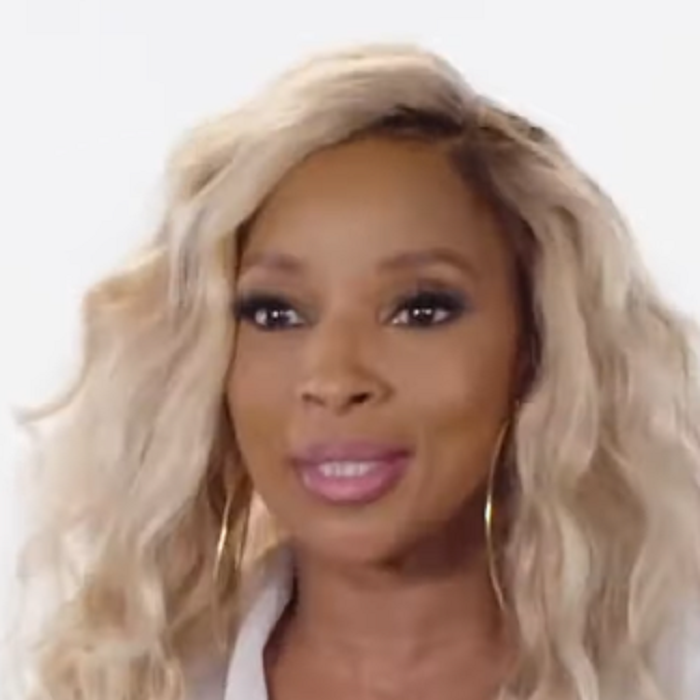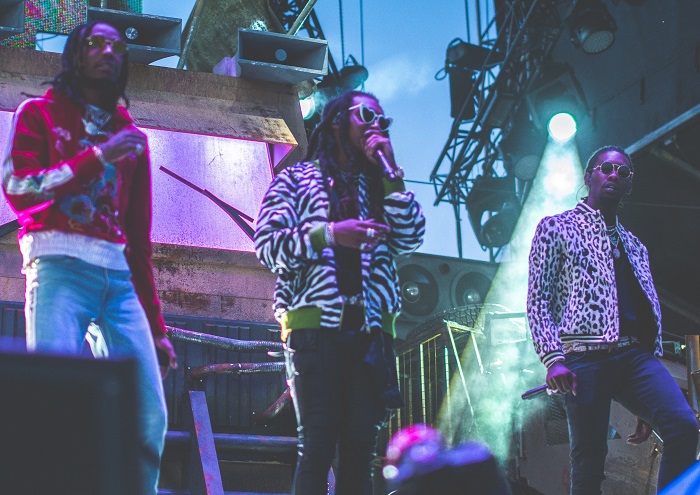
It’s A Dark Record But I Wanted A Sense Of Comfort To Be There – Garbage
Shirley Manson struggles to explain how a Garbage record comes together. It just happens. “We don’t really speak to each other about anything, we just go into a room and what comes out is what comes out,” the singer tells Apple Music. “It’s usually a shambolic kind of journey. Somehow we end up with a record at the end of it all and we wonder how we did it. It’s a mystery, which I think is probably as it should be.” The quartet refines their chaotic process into another captivating collection of electronic-rock anthems on seventh album No Gods No Masters, a record that takes in snarling techno-punk, synth-pop flourishes, and atmospheric balladry across its 11 tracks (this version also includes a bonus disc of covers).
Combining themes of personal turmoil with state-of-the-nation temperature-taking, it swerves from defiance to despair and back again, with Manson in exhilarating lyrical form throughout. “I was pleasantly surprised that I was able to articulate somewhat complex issues in quite a colorful way without being too heavy-handed,” she says. It all began with Manson and her bandmates—Duke Erikson, Steve Marker, and Butch Vig—in a room together in Palm Springs, California, thrashing out ideas. However, lockdown meant it had to be completed remotely. Manson says they drew on three decades’ worth of experience to get the job done. “I have to commend the whole band on being able to shape-shift and adapt,” she says. “I think one of the reasons we’ve had a long career is everybody in this band is capable of adapting.” Here, Manson unravels some of the mystery of how they do it by taking us through the album, track by track.
“The Men Who Rule the World”
“It was Butch’s call to open with this. I was like, ‘I don’t know. I feel like maybe not.’ And then I tried a billion different ways of sequencing the record and each time I had to come back to ‘The Men Who Rule the World’—that was really pretty much the only place for it. It’s definitely a mood setter. I think it’s really good-natured, but it’s this sort of retelling of Noah’s Ark, it’s a biblical tale. It’s grand in theme, but it has a lot of humor in it, and also a lot of outrage. To me, that’s the perfect combo.”

“The Creeps”
“These lyrics tell a tale of great change in my mind. I had told myself that at the grand old age of 40, I was over the hill and I would never, ever be an artist again. I got paralyzed and depressed. I was driving along Los Feliz Boulevard, having been dropped by Interscope Records, and I saw a garage sale selling a shop-size poster of my band. I was so humiliated. But from that humiliation, I somehow managed to free myself from public perception and industry perception and expectations and focus on trying to have a good life and being creative and singing and making music and writing. My life bloomed from that point forward, so ‘The Creeps’ is important to me.”
“Uncomfortably Me”
“I think everyone can relate to that feeling of not being fully developed yet and feeling uncertain and fearful and not fitting in. Certainly, an overriding feeling my whole life is that I just never quite fit in at a dinner party, I never quite fit in a festival bill. I feel like I don’t even fit into my own band—I’m the only woman, I’m much younger, I come from Scotland and they’re American. I just feel like a permanent outsider. And the band do too, we just don’t fit in with any scene. It used to upset and frustrate me, but now I’m like, ‘It’s fucking great.’ In this world that has a plethora of bands and artists, we are here in a singular form.”
“Wolves”
“I stumbled upon this Eastern European fairy tale about the idea of two wolves that exist in each human being and wrestle with one another. You choose how you’re going to respond to a situation. Even though you think it’s just instinct, it’s actually a split-second choice. ‘Am I going to be an asshole or am I actually going to try and deal with this situation with kindness?’ It’s hard for me not to be an asshole. I want to attack; that’s just my natural state of being. If someone hurts or offends me, or makes me scared, my instinct is to destroy. As I’m getting older, I want to choose kindness instead and I want to try and control the hardcore wolf and let the kind, soft wolf out instead.”
“Waiting for God”
“I would have felt really disappointed in myself if I hadn’t touched on systemic racism on this record. It really is something that’s just become more and more pressing on me. When Trayvon Martin was murdered—this beautiful 17-year-old kid, walking home at night in a hoodie, holding a bag of Skittles in his hands and he gets shot by a white supremacist—and the way his death was treated in the press, the way that disgusting George Zimmerman got off by pleading his own fear, I think it triggered something in me. I finally started really paying attention. And I have great shame around the fact that it’s taken me this long and I’m 54 years old. But after the death of Trayvon Martin, I just saw this alarming spate of murders of Black kids in America, it was shocking. It felt like it was every day and nobody gave a shit.”
“Godhead”
“‘Godhead’ is really tongue-in-cheek, but it’s also stating the obvious, which is: If I was a male, I would be treated very differently in the world. I know this because of some of the misogyny and sexism I have endured as a professional musician. When I was in my thirties, it infuriated me to the point that I couldn’t really see straight. Now, I find it almost funny that the male is given all this gravitas in society because he’s got a silly cock and balls between his legs and women aren’t given the same amount of gravitas because we’ve got vaginas. When you start examining that patriarchal coloring of absolutely everything, that even God is sold to you as a male figure, you start to see this insidious madness that conditions males into feeling they’re more important. And it conditions females into thinking they are less important. And it’s really beginning to wear on me terribly.”
“Anonymous XXX”
“We kept on obsessing over Roxy Music and how modern they still sound, and how exciting and dangerous. The idea of danger in music seems to have been almost eradicated entirely, certainly in mainstream pop music. We were obsessing over Andy Mackay’s sax sound, and so we wrote a song using a synth sax. I wanted to write about this idea of anonymous sex. I find it so fascinating. What attracts us to having sex with people we don’t know? And why do we project all our longing onto these kinds of dalliances? It was that fascination with the hidden and the secrets and the self-deception.”
“A Woman Destroyed”
“I think this is my attempt to flip the narrative on what was happening with the Me Too movement, where I felt women were being portrayed poorly by the media. And it pissed me off that so much of the discussion was focusing on the victimization of women and what had women done to encourage their attacks on their bodies and on their freedoms. I wanted to create a female superhero who took revenge much like A Girl Walks Home Alone at Night, which is the Persian movie by Ana Lily Amirpour. I love that notion of this vampire taking revenge on those who hurt her. And so the song is a cinematic fantasy of revenge.”
“Flipping the Bird”
“I was inspired by Men Explain Things to Me by Rebecca Solnit, and this idea of suddenly being aware that a lot of the time, when you’re choosing to engage with men about certain subjects, they automatically assume that you know nothing and that they are the ones who know everything. I was also inspired by hanging out with Liz Phair and feeling a little taken over by her spirit. I wanted to sing a song like she does, where she always picks a really low register in her voice. It’s an acerbic look at the male ego and how women often choose, myself included, to form ourselves around this ego in the room in order to keep the peace and not have an angry man. We make these little compromises on the surface, but behind our eyes, there’s a whole other perception of what’s going down.”
“No Gods No Masters”
“I sing on this song, ‘No masters or gods to obey,’ and I was like, ‘Great, “no gods no masters” is the old punk slogan’ and that seemed like the perfect title for the whole record because of what was going on socially at the time. There was just so much dissent and rebellions against governments and the people really rising up, whether it was the Me Too movement, the Black Lives Matter movement—it was a glorious, beautiful thing to see. We all want good things for our babies, our families, our friends. And yet we so often then want to crush someone else’s spirit, who’s not our friend, who’s not our baby, who’s not our family. And it’s a mystery to me. And yet the world tumbles on, evolution continues. The future still holds. And that is a glorious thing. I love feeling hopeful about new generations who will eventually sort this shit out.”
“This City Will Kill You”
“This song is a goodbye and it’s an elegy, but it’s also hopeful. If you find yourself in shit, it doesn’t mean you have to stay there. It doesn’t mean your life is over. I still believe in the possibilities [that] you can turn pretty much anything around. I wanted that sense of comfort to be there, because it’s a dark record, it’s a difficult record. I wanted this to be, at the end of everything, like an embrace, like, ‘It’s going to be OK.’”
Every product/service is selected by editors. Products/Services you buy through these links may earn “SMG” a commission or revenue.



